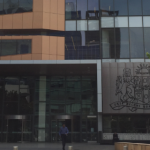Tough Bail Laws Can Affect Anyone, Not Just ‘Criminals’

The presumption of innocence is a fundamental principle of criminal law.
It posits that a person is to be presumed innocent until and unless the prosecution is able to establish his or her guilt beyond a reasonable doubt.
The principle is meant to ensure that people are not pre-judged or punished over unproven allegations, and are afforded a fair trial.
Arrest and bail
Once a person is arrested, they will normally be offered the opportunity to participate in a police interview.
Police may also seek to subject them to forensic procedures, such as a buccal swab to extract DNA.
Police are meant to complete this ‘investigation period’ within 4 hours of arrest. That timeframe does not take into account ‘time outs’ (eg the time it takes to travel to the station, to call a lawyer, to have refreshments etc) and may be extended for another 4 hours if approved by a magistrate.
After that period, police are required to:
- Release the person unconditionally and without bail; or
- Release them on conditional bail (commonly referred to as ‘police bail’); or
- Refuse bail.
If bail is refused, police must bring the person before a local court magistrate as soon as practicable, which is usually that afternoon or the next day.
At court, the arrested person will have the option of applying for bail – which is an application to be released from custody until the next court date.
It is important that bail applications are treated with utmost importance as, given current court backlogs, a person who is refused bail may find themselves behind bars for a year or more awaiting the finalisation of their cases.
The presumption of innocence
In light of the presumption of innocence, many wonder how a person who has not been found guilty could be kept behind bars for a year or more. They may ask: doesn’t the concept of locking up a person who is presumed innocent undermine the presumption?
Indeed it does. Bail laws are becoming increasing harsh in NSW, which means more people are being locked behind bars awaiting their court dates that ever before. In the past 5 years, the number of inmates ‘on remand’ (in prison awaiting their cases) has increased by a whopping 87% in NSW and currently stands at over 13,000.
Many of these people will ultimately have their charges dropped for lack of evidence or thrown out of court, yet the damage of being imprisoned for long periods of time will already have been done – significantly affecting their relationships, careers, finances and mental health.
Practical Experience in the Local Court
Despite the presumption of innocence being considered as fundamental to our criminal justice system, the sad reality is that local court magistrates rarely afford any regard to the concept in the context of bail applications.
Some magistrates will pay lip-service to the presumption by making fleeting reference to it during their judgments, but rarely will they give practical effect to one of the most important concepts in criminal law.
In many serious cases, especially those attracting media attention, magistrates will sometimes see fit to quickly refuse bail after emphasising “community expectations” and “community protection”, without properly considering the case before them let alone the effects upon the person who is accused.
In those cases, the defendant may have no option but to make a further bail application to the Supreme Court, where the justices will often actually hear and properly consider the merits of the application.
Of course, there are cases where particularly dangerous people with lengthy criminal histories can and should be refused bail. But these cases are rare – most people who are currently being refused bail fall well-outside this category.
And while radio shock jocks and tabloid newspapers regularly misrepresent cases – or latch onto rare cases where a person who is granted bail commits a further crime – the reality is that most people who are actually experienced in the criminal justice system acknowledge that the pendulum has swung too far towards the prosecution.
Indeed, thousands of people who will ultimately be released without conviction are currently being held behind bars, and the sad reality is that many magistrates have little or no regard to the interests of those people.
It’s not my problem!
Day after day, week after week, our firm is contacted by those in custody – or by their family members or friends – who are outraged that a person could be arrested and imprisoned on a mere suspicion of guilt, without any supporting evidence.
They say things like ‘how could this be?’, ‘this is Australia, isn’t it!’. The reality is that anyone can be accused of a crime, and we have had countless cases where police suspicions turn out to be false.
It’s difficult for many to understand that it is often much easier to ultimately have charges dropped or thrown out of court than to achieve bail these days, yet the public – influenced by the mainstream media – seem to be calling for increasingly harsh bail laws. ‘Lock’em up and throw away the key’ is something many cry when they hear media reports of an arrest for a serious crime. ‘If you’ve done nothing wrong you have nothing to fear’, they regurgitate.
But tough bail laws, and other laws which undermine the presumption of innocence, can affect anyone.
We should be careful not to allow governments to take away our fundamental safeguards and protections, or it may affect us personally when we least expect it.






